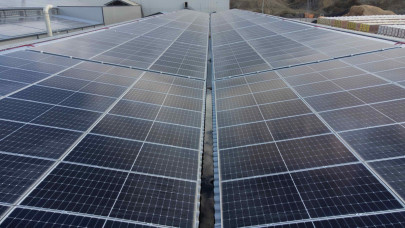The new legal provisions will thus end a long period in which smart mobile phones left the factory with built-in, sealed batteries, often glued to the phone's glass back. For this reason, most of the owners of such phones were until now forced to buy new phones, when the battery ended its operating cycle, sometimes even earlier than two years, or to call on specialized services to replace them, the procedure being expensive and not always possible.
In addition to the practical and financial benefits brought to consumers, the new European rules will also contribute to building a sustainable circuit in the profile industry. The representatives of the RESPO WEEE Association explain why, from 2027, we will witness a considerable reduction in electrical and electronic equipment waste, which pollutes the environment with dangerous chemical compounds.
"For more than a decade we have been dealing with the problem of smartphones whose batteries can only be replaced through complicated procedures in specialized services. This is precisely why most consumers have so far been forced to give up their phones and buy new ones once the battery no longer functions at optimal capacity. Thus, old telephones too quickly became a waste of electrical and electronic equipment. As they were not handed over for recycling, they ended up, most of the time, in the household waste and in the environment, with great risks of pollution", declares Cristian Pocol, President of the RESPO DEEE Association.
New European Union regulations force manufacturers to rethink the architecture of future cell phone models so that their batteries can be easily removed and replaced by consumers.
"The decision will also contribute to protecting the environment. We will be able to use the mobile phone for more years by changing only the battery, we will reduce the carbon footprint generated by the manufacture of new phones, we will not generate so much hazardous waste and, in addition, we will simplify the recycling process, since phones with removable batteries are much easier to disassemble, thus facilitating the recycling of components and reducing the extraction of new chemical components", continues Cristian Pocol.
The advent of phones with removable batteries will bring 5 changes for the better.
Once the new European Union regulations are implemented, we will witness a series of improvements in the relationship of each consumer with the environment, but also in terms of the circular economy.
- Phones will have a longer life. When cell phone performance drops, it's usually the battery, not the hardware, that's to blame. If it had an easy-to-replace battery, most consumers would insert a new one and continue using the product instead of throwing away the entire phone, extending the life of the device and reducing e-waste.
- Reduces the amount of waste. When phones with hard-to-replace batteries break, the entire device often ends up in landfills or recycling facilities.
- The impact on the environment is reduced. Manufacturing a new smartphone requires mining, refining, and processing raw materials, which consumes energy and natural resources. By extending the life of a phone after battery replacement, the demand for new phones decreases, resulting in energy and resource savings and a smaller carbon footprint.
- Simplified recycling. Phones with replaceable batteries are often easier to disassemble and recycle because the battery can be removed separately. This facilitates the recycling of materials and reduces the potential for hazardous substances to enter the environment and subsequently into the human body.
- Encourage the habit of fixing. Devices with replaceable components will be much easier to repair. Once they can be disassembled more easily, the repair process will also be a less expensive one. The habit of trying to repair a product before deciding to throw it away will spread.
According to the statistics communicated by the RESPO WEEE Association, more than 23 million used mobile phones are still in the drawers of Romanians, not yet being offered for recycling. Unfortunately, they run the risk of being thrown in the trash or in nature, their chemical compounds polluting the environment, entering the soil and water and finally ending up in our bodies. Many of these became waste precisely because the owners gave up using them once the battery stopped working, being extremely difficult to replace.
"Phones with batteries that cannot be easily replaced are the most likely to reach such waste quickly because they are replaced by other new phones once the battery no longer functions at normal parameters. A smartphone contains more than 70 elements, mostly made of metal (45%), glass (32%), plastic (17%), and precious metals, such as gold, silver, copper, or cobalt, but also toxic substances that they can seriously affect people's health, but they can also contaminate the soil, once they reach the landfills", says Cristian Pocol, President of the RESPO Association.
If we can only replace their battery, we will use them longer, we will not have to buy new models. Thus, the production of new phones will also reduce the pressure on the extraction of new resources, he adds.
"If we also offer them for recycling, once we no longer use them, their components will be able to be reused. With every 10,000 mobile phones recycled, we avoid the mining of 26 tonnes of gold ore and 29 tonnes of silver ore. By reducing mining, greenhouse gas emissions from the atmosphere (CO2) are reduced. For example, for the extraction of one kilogram of gold from mines, 23 tons of CO2, 27 grams of mercury, 22 grams of arsenic, and 2000 tons of waste are produced", declares Cristian Pocol, President of the RESPO Association.
Waste electrical and electronic equipment, in this case, mobile phones, should not be thrown in the trash, nor should they be kept in homes with other products, but should be personally transported to dedicated recycling centers/new product stores or handed over to companies for collection who provides this service.
The RESPO DEEE Association provides free containers that can be filled with the electrical and electronic equipment waste that we want to offer for recycling and personally transported to collection centers.














